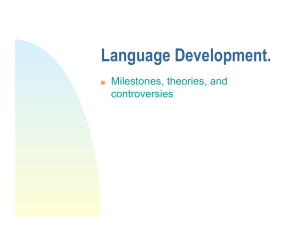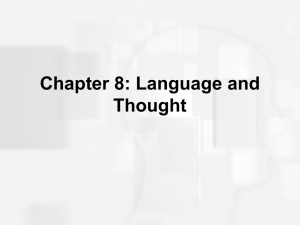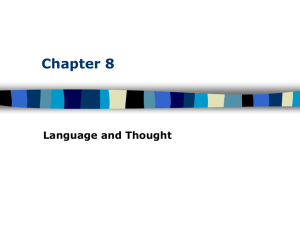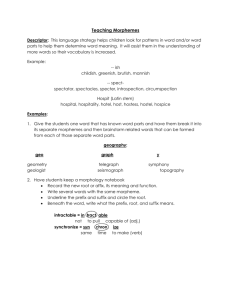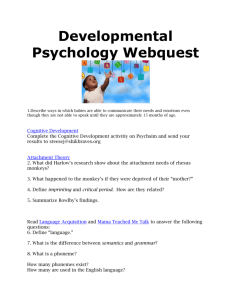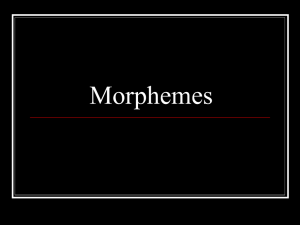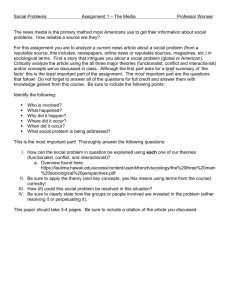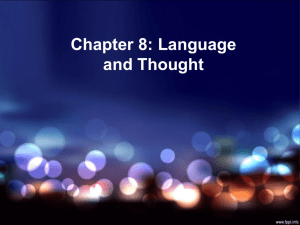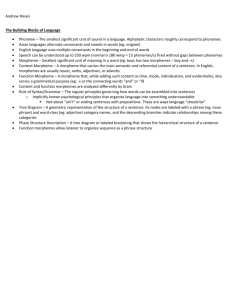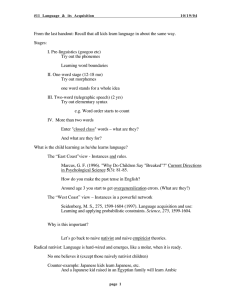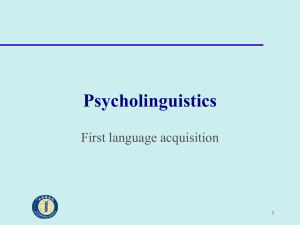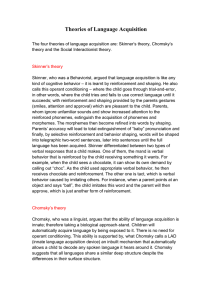Chapter 8- Language and Thought
advertisement
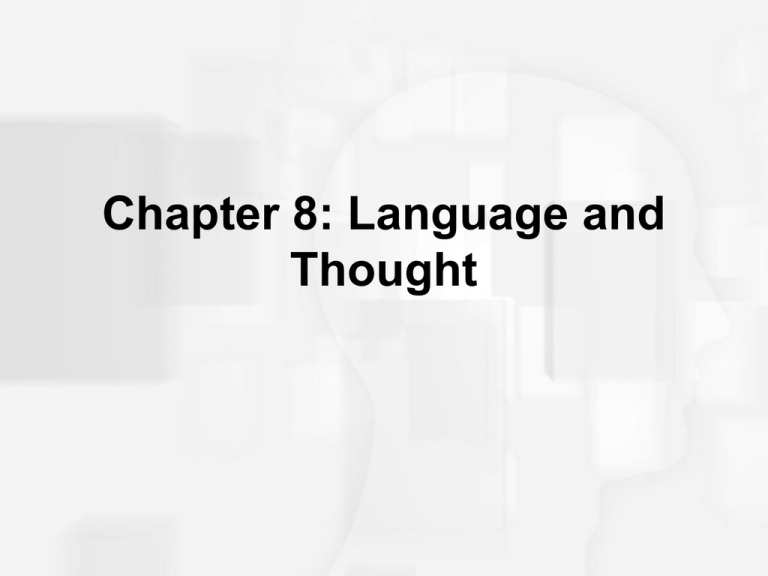
Chapter 8: Language and Thought Language: Turning Thoughts into Words • Properties of Language – Symbolic – Semantic – Generative – Structured The Hierarchical Structure of Language • Phonemes = smallest speech units – 100 possible, English – about 40 • Morphemes = smallest unit of meaning – 50,000 in English, root words, prefixes, suffixes • Oat = 1 morpheme • Boat = 1 morpheme • Boats = 2 morphemes • Antidisestablishmentarianism = ?????? The Hierarchical Structure of Language • Semantics = meaning of words and word combinations – Objects and actions to which words refer – “visiting relatives can be a pain” • Syntax = a system of rules for arranging words into sentences – Different rules for different languages Language Development: Milestones • Initial vocalizations similar across languages – Crying, cooing, babbling (consonant & vowel combinations) • 6 months – babbling sounds begin to resemble surrounding language • 1 year – first word – similar cross-culturally – words for parents – receptive vs. expressive language Table 8.2 Overview of Typical Language Development Language Development: Milestones Continued • 18-24 months – vocabulary spurt – fast mapping: map a word to an underlying concept after only one exposure – Overextension: using a word to describe a wider set of actions or objects than what is appropriate – Underextension: using a word to describe a narrower set of actions or objects Language Development: Milestones Continued • End of second year – combine words – Telegraphic speech: mainly content words – Mean Length of Utterance (MLU) • End of third year – complex ideas, plural, past tense – Overregularization: grammatical rules used incorrectly Bilingualism: Learning More Than One Language • Research findings: – Smaller vocabularies in one language, combined vocabularies average – Higher scores for middle-class bilingual subjects on cognitive flexibility, analytical reasoning, selective attention, and metalinguistic awareness – Slight disadvantage in terms of language processing speed – 2nd languages more easily acquired early in life – Greater acculturation facilitates acquisition Figure 8.4 Age and second language learning Can Animals Develop Language? • Dolphins, sea lions, parrots, chimpanzees – Vocal apparatus issue – American Sign Language • Allen and Beatrice Gardner (1969) – Chimpanzee - Washoe – 160 word vocabulary • Sue Savage-Rumbaugh – Bonobo chimpanzee - Kanzi – Symbols – Receptive language – 72% of 660 requests Theories of Language Acquisition • Behaviorist – Skinner • learning of specific verbal responses • Nativist – Chomsky • learning the rules of language • Language Acquisition Device (LAD) • Interactionist – Cognitive, social communication, and emergentist theories Figure 8.5 Interactionist theories of language acquisition
